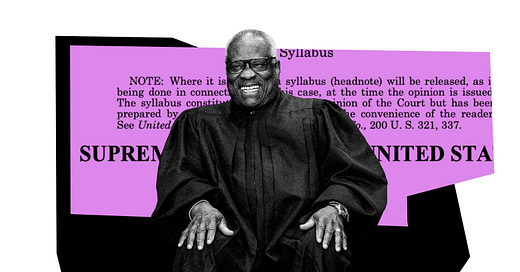This past week, the U.S. Supreme Court put an end to affirmative action in higher education, outlawing race-conscious admissions and overturning nearly 50 years of precedent.1
Affirmative action did itself in.
Ironically, without the affirmative action policies of the past several decades, it is unlikely that African-American Supreme Court Justice Clarence Thomas, who joined the majority in the Fair Admissions opinion, would ever have become a Supreme Court justice, let alone a lawyer.
Justice Thomas was admitted to Yale Law School under affirmative action policies in effect in 1991. His time (and mistreatment at law school because of his race) is well documented in several interviews and his 2007 memoir.
"As much as it stung to be told that I'd done well in the seminary despite my race, it was far worse to feel that I was now at Yale because of it." - Justice Clarence Thomas
Thomas continued to benefit from race-based preferences throughout his career, until he made his way to the Supreme…
Keep reading with a 7-day free trial
Subscribe to UnfairNation to keep reading this post and get 7 days of free access to the full post archives.





